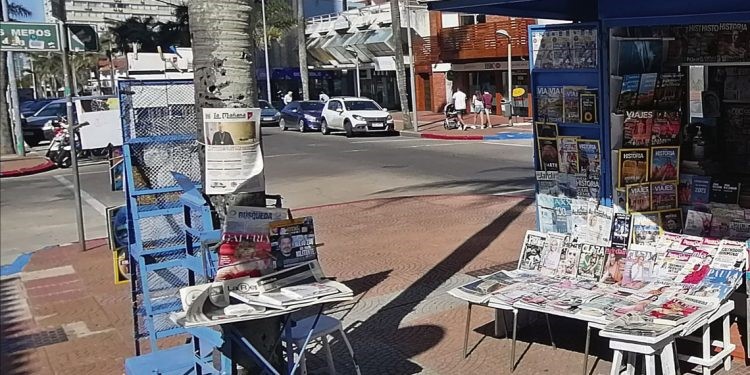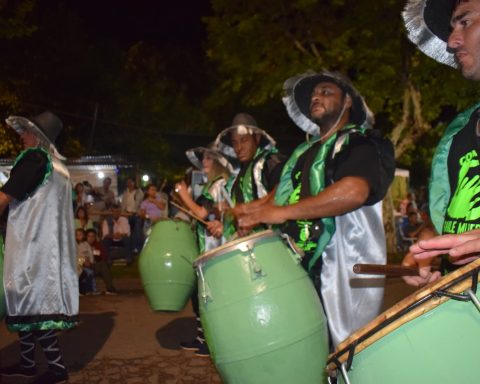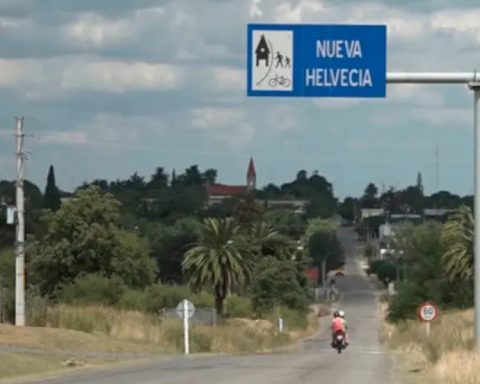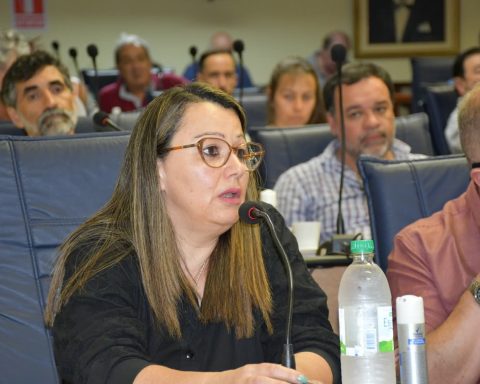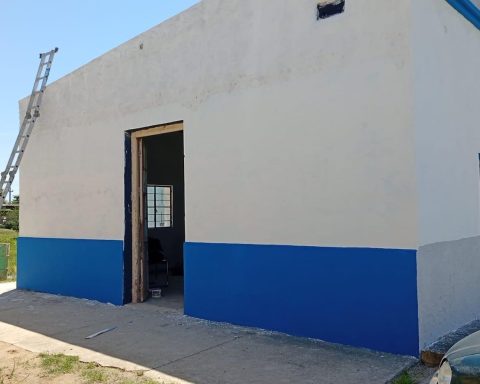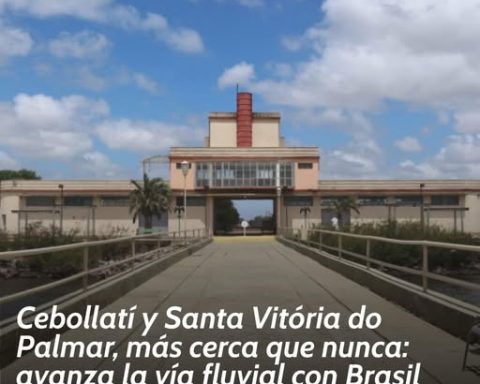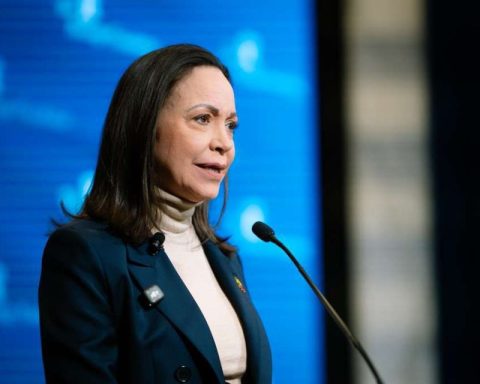Alejandro Olmedo, president of the Interior Press Organization (OPI)
The Budget Law indicates that 20% of State advertising must go to the media in the interior, but this has not yet been fulfilled. Representatives of all parties have met with the Interior Press Organization (OPI). The president of this organization, Alejandro Olmedo, told The morning that all political parties have made “massive support” for the law to be complied with.
How is the issue of official advertising for the media in the interior being carried out?
At the moment it is locked. We have followed up through the State agencies and they have recently budgeted everything for the year 2023, but the truth is that at the moment the awarding of official advertising to the interior media is not working.
According to the new regulations, what percentage would have to be giving advertising to the interior media?
The bill that was voted on and that was later regulated indicates that 20% of the publicity of State agencies must be directed to the media of the interior. Of that sum, 40% is for television, another 40% for radio, 19% for the written press and 1% for community radio.
What are the reasons why you still do not have access to official advertising according to what the law establishes?
I think this took state companies by surprise. One of the points is how the distribution will be, because official advertising will reach everyone. Some thought that the law was not going to be complied with, but the law is there to comply with it. From OPI we are monitoring the issue and controlling when it starts to run. Now that the law is regulated and some more official publicity is going to come, it is up to us to follow up in each body what is budgeted and what has been awarded to the written press in the interior.
How can this follow-up be done?
The path seems to be clear and it is through requests for reports from Parliament. All parties are involved in this. Lately, on the OPI board we received Vice President Beatriz Argimón, Senator Guido Manini Ríos and Senator Liliam Kechichian. Also some time ago we had a meeting with Adrián Peña from the Colorado Party. There is massive support from political power and the parties to follow up in each body, when they have the annual budget and the awards are made. We therefore think that the most logical thing to do is to request reports through the legislators, to find out how the advertising was distributed and then we will know if the law is being complied with or not.
How does this injection of money change for the media in the interior?
The situation changes a lot. Looking a little inside what the written press is, we have some shortcomings and this is going to lead to investing in new machines to deal with better printing quality. Also in investments, for example, of computers and everything related to photography and what it does to the part of the media worker. Inside, the media live like a big family. Most are family businesses that make a great effort to maintain these resources. Let us reflect that some of those who are in charge today are already third or fourth generation, that is, they inherited the resources of their ancestors.
Community support
What situation are the written media in the interior going through?
In the case of the written press, we never depended on a notice from the State. If I make a balance backwards, the allocation of official advertising to the written press in the interior of the country always oscillated between 0.9% and 1% of the total that was advertised in all the media at the national level. That is to say, there was never an advertising campaign or that notices were published by State agencies in the written press of the interior.
From what you point out, the question arises as to how they survive.
The written media inside can be divided into two. In one part of the country, the highest percentage are subscribers and they pay monthly. Elsewhere, the highest percentage is direct sales and the smallest is subscription. Those are the two ways by which our media are sustained. In addition, there is the advertising sale to businesses and sometimes also the notice of the Departmental Board, the municipalities or the Intendancy.
How many written media are there inside?
In total there are 82. There are 53 members of the Interior Press Organization. The remaining 29 are media that print in the country’s capital. One of the statutes of the OPI says that to be a member you must have your own workshop or print in a workshop in the interior. This is the way that we also encourage labor in graphic workshops.
The amount of written media in the interior is striking, when we are facing a global crisis of the written press. What is this phenomenon due to?
I can speak for the 53, who are our partners. In the pandemic, some outlets closed, because it was a difficult time. It must also be said that at the worst moment of the pandemic, the State appeared to give us a hand. But basically on the inside, both the daily, the weekly or the fortnightly are publications that if they really know how many subscribers they have, they already know what their sales revenue will be. We must bear in mind that all the media together are at 78,000 copies. There is also another phenomenon. Inside, the newspaper is expected, because it carries information about the town, the city and the people who got used to it and today more than ever it is valid. Beyond this, some ask you if it will not be that the paper disappears with all the digital theme. When we had the pandemic, we had to update ourselves in some way to survive and many of the media outlets that did not have a portal did so, and that way they generated income to cover expenses. Today these media have been strengthened, both on paper and digitally, and are carrying out this great undertaking that is having a media outlet in the interior.
If we compare with the 90s, are there more print media in the interior or have they decreased significantly?
The amount of media is maintained, but with the pandemic we lost three companies that closed. This was due to the fact that there was no way to solve the issue of the distribution of the newspapers, due to the conditions that prevailed at that time. But one of the reasons why the media continue is that inside it is the neighbor who is waiting for the newspaper to be able to read community news, such as obituaries, the 15th birthday, the accident that occurred in the corner, politics and sport. In many places, the newspaper also writes the script for the other media, such as the radio or the channel. Because the newspaper is where the news comes out first. In other words, the newspaper is used as a guide and support, and that culture has always been there. Cesar Barrios-The morning
